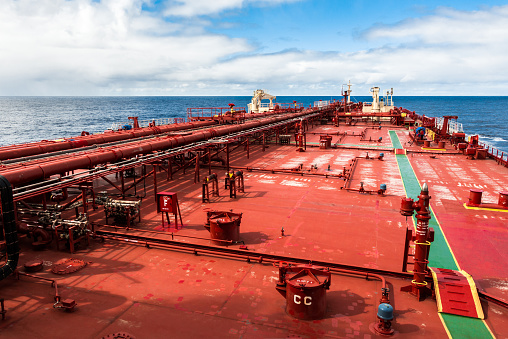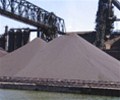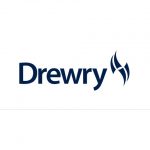To align with the latest revision of the ESP Code (as amended by IMO Res. MSC.525(106)) and IACS Unified Requirements (UR Z10.1/.2/.4/.5), DNV has updated the periodical survey requirements. These new requirements will be in force for surveys commenced on or after 1st July 2024.
Relevant for ship owners and managers of bulk carriers and oil tankers.
The following changes are to be observed:
Bulk carriers
The ballast tank coating condition for bulk carriers with ESP notation will now be identical to the criteria applicable for oil tankers. This means that a coating condition rated less than “GOOD” (i.e. “FAIR” or “POOR”) shall be recorded for examination at subsequent annual surveys.
An annual examination will be implemented after the first renewal or intermediate survey (commenced on or after 1st July 2024) if the coating condition is not restored to “GOOD”.
Double-skin void spaces bounding cargo holds in bulk carriers exceeding 20 years of age and 150 metres in length shall be examined annually if the protective coating is found to be “POOR”.
New requirements have been introduced to the annual survey of double-skin void spaces, when applicable, for bulk carriers exceeding 20 years of age and 150 metres in length.
Oil tankers
An amended definition has been provided for oil tankers to clarify that the ESP Code does not apply to oil tankers carrying oil in independent tanks which are not part of ship’s hull (e.g. asphalt carriers).
The cargo tank testing requirements for oil tankers, when the testing is done by the crew, has been amended. To clarify, the testing shall be carried out within the renewal survey window but not more than three months prior to the crediting of the overall and/or close-up examination.
Owners of asphalt/bitumen tankers with independent cargo tanks should note the clarification in the definition for an oil tanker.
Recommendations
Given the updated requirements, it is strongly recommended that the coating condition of water ballast tanks and double side skin void spaces on bulk carriers undergo continuous maintenance.
For oil tankers, it is essential to prioritize the applicable window for completing cargo tank testing when conducted by the crew.
Source: DNV





